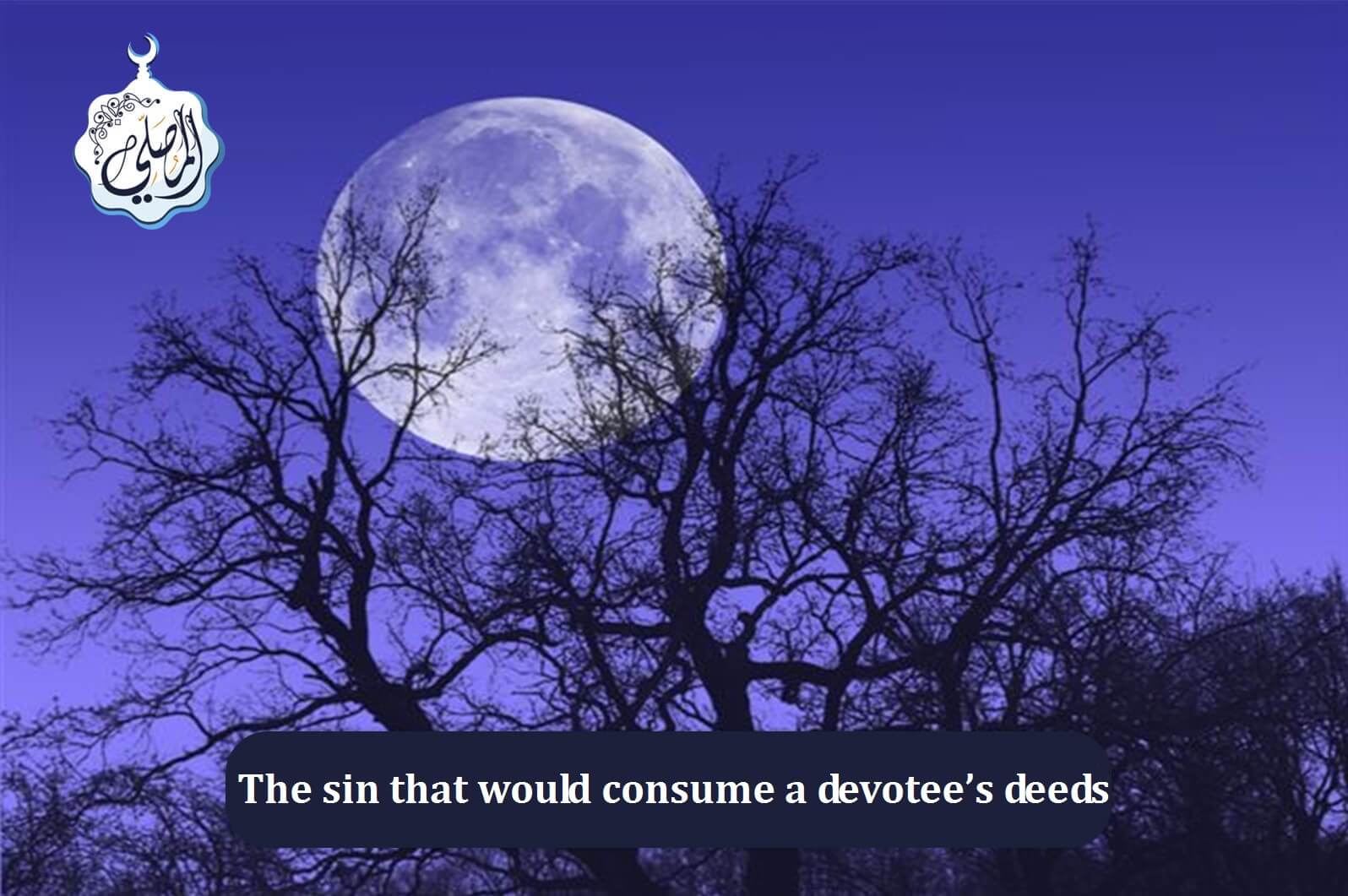
Congregational prayer is a spiritual school that refines the heart, nurtures the Muslim in obedience and discipline, and embodies the meaning of brotherhood in faith in its most sublime form.
In congregational prayer, the reward is multiplied. The rich and the poor, the scholar and the commoner, meet in a single row where there is no distinction or separation. They all declare their submission to Allah, the One, the Irresistible. Thus, social differences dissolve, and the seeds of love and unity are sown in the Muslim society.
Hence, congregational prayer is a great obligation of immense significance. It revives the mosques, purifies the hearts, rectifies conditions, and spreads among the Ummah a spirit of cooperation, solidarity, and faith.
The Meaning of Congregational Prayer (Salah al-Jama'ah)
Performing the prayer in congregation.
The Virtue of Congregational Prayer
From Allah's favor upon His servants is that He has placed in congregational prayer a great reward, lofty ranks, and a positive impact on the individual and society. Therefore, the Messenger of Allah ﷺ urged it and explained its virtue in many hadiths.
Multiplication of Reward in Congregational Prayer
In congregational prayer, there is elevation of ranks, expiation of sins, and multiplication of reward up to twenty-five degrees. It is an act of worship that transcends the individual to a great collective virtue that overflows upon the entire Ummah.
-
`Abdullah bin 'Umar reported: The Messenger of Allah ﷺ said, "Congregational prayer is twenty-seven times superior to the prayer offered by a person alone."*
[Sahih al-Bukhari (645), Sahih Muslim (650)] -
Abu Sa'id Al-Khudri reported: The Messenger of Allah ﷺ said, "Prayer in congregation is equivalent to twenty-five prayers (offered alone). If he prays it in an open tract of land and perfects its bowing and prostrations, it becomes equivalent to fifty prayers."
[(Hasan) Sunan Abi Dawud (560)] -
Abu Hurairah reported that the Messenger of Allah ﷺ said, "If the people knew the reward in the call to prayer (Adhan) and the first row, and they could not get it except by drawing lots, they would draw lots. If they knew the reward for praying at the early time, they would race for it. And if they knew the reward for the 'Isha' and Fajr prayers in congregation, they would come to them even if they had to crawl."
[Sahih al-Bukhari (615), Sahih Muslim (437)]
The Angels' Prayers for Those in Congregation
As long as the worshipper is waiting for the prayer in his place of prayer, the angels pray for him.
The Messenger of Allah ﷺ said, "A man's prayer in congregation multiplies his prayer offered alone or in the market by twenty-five times. That is because when he performs ablution and does it perfectly, and then goes out to the mosque, having no purpose other than prayer, he does not take a step without being raised a degree and having a sin remitted. When he prays, the angels continue to pray for him as long as he is in his place of prayer: 'O Allah, bless him; O Allah, have mercy on him.' And one of you is considered in prayer as long as he is waiting for the prayer."
[Sahih al-Bukhari (647)]
So congratulations to the one who prolongs sitting in the house of Allah, waiting for his intimate conversation (with His Lord).
The Gathering of the Night and Day Angels in the Fajr Prayer
In the Fajr prayer, the servant witnesses a great scene, where the angels of the night and the day gather in the house of Allah, witnessing his worship and devotion.
-
Abu Hurairah reported from the Prophet ﷺ that he said, "Prayer in congregation is twenty-five times superior to the prayer of a man alone." He (the narrator) said, "The angels of the night and the angels of the day assemble at the time of Fajr prayer." Abu Hurairah added, "Recite if you wish: 'Indeed, the recitation of Fajr is ever witnessed' (Quran 17:78)."
[Sahih Muslim (649)] -
'Abdur-Rahman bin Abi 'Amrah said: 'Uthman bin 'Affan entered the mosque after Maghrib prayer and sat alone, so I sat with him. He said, 'O son of my brother, I heard the Messenger of Allah ﷺ say: 'Whoever prays 'Isha' in congregation, it is as if he stood (in prayer) for half the night. And whoever prays Fajr in congregation, it is as if he prayed the entire night.'"
[Sahih Muslim (656)]
Congregational Prayer is an Expiation for Sins
Whoever performs ablution and perfects it, then prays the obligatory prayer with the congregation in the mosque, Allah will forgive his sins. So, prayer in congregation is not merely a virtue, but it is forgiveness and mercy from Allah.
-
Humran, the freed slave of 'Uthman, said: "'Uthman bin 'Affan performed ablution one day perfectly and then said, 'I saw the Messenger of Allah ﷺ...' I heard the Messenger of Allah ﷺ say, 'Whoever performs ablution for prayer and perfects the ablution, then walks to the obligatory prayer and prays it with the people, or with the congregation, or in the mosque, Allah will forgive him his sins.'"
[Sahih Muslim (232)]
The Great Reward for the One Farthest from the Mosque
-
Abu Musa reported: The Prophet ﷺ said, "The person who will receive the highest reward for the prayer is the one who comes from the farthest distance. And he who waits for the prayer to pray with the Imam will have a greater reward than the one who prays and then sleeps."
[Sahih al-Bukhari (651), Sahih Muslim (662)] In a version in Muslim: "...until he prays it with the Imam in congregation." -
Jabir bin 'Abdullah reported: "The areas around the mosque became vacant. So Banu Salimah decided to move near the mosque. This news reached the Messenger of Allah ﷺ, and he said to them, 'I heard that you intend to move near the mosque.' They said, 'Yes, O Messenger of Allah, we have intended that.' He said, 'O Banu Salimah, your dwellings (will continue to) record your footsteps (i.e., you get the reward for the distance you walk). Your dwellings (will continue to) record your footsteps.'"
[Sahih Muslim (665)] -
Anas reported: The Prophet ﷺ said, "O Banu Salimah, do you not reckon (the reward for) your footsteps?" And Mujahid said regarding His statement: {And We record what they have sent ahead and their footprints [i.e., their deeds and traces]} (Quran 36:12): "Their footsteps."
[Sahih al-Bukhari (655)]
The Severe Warning for Those Who Neglect Congregational Prayer
-
Abu Hurairah reported: "The Messenger of Allah ﷺ noticed some people absent from a certain prayer. He said, 'I had thought of ordering a man to lead the people in prayer, then I would go to men who stay away from it and burn their houses down around them. If one of them knew that he would find a fat, meaty bone, he would attend it.'" – meaning the 'Isha' prayer.
[Sahih al-Bukhari (644), Sahih Muslim (651)]
In this noble hadith, the extreme importance the Prophet ﷺ gave to congregational prayer is evident, to the extent that he – the Compassionate, the Merciful – thought of punishing those who neglected it; due to the belittlement of Islamic rites and deprivation of the great reward that Allah has prepared for those who pray in His houses.
In his statement ﷺ, "If one of them knew that he would find a fat, meaty bone, he would attend it," is a severe reproach, as it shows that some people are motivated by worldly greed, not by obedience to Allah!
-
Abu Hurairah reported: The Prophet ﷺ said, "No prayer is heavier upon the hypocrites than the Fajr and 'Isha' prayers. If they knew the reward in them, they would come to them even if they had to crawl. I had thought of ordering the Mu'adhdhin to call Iqamah, then order a man to lead the people in prayer, then take torches of fire and burn down the houses of those who had not yet come out for the prayer."
[Sahih al-Bukhari (657)] -
'Abdullah bin Mas'ud said: "We used to think that only a known hypocrite would stay away from the prayer, or a sick person. Indeed, the sick person would walk between two men until he came to the prayer." And he said, "The Messenger of Allah ﷺ taught us the paths of guidance, and among the paths of guidance is prayer in the mosque where the Adhan is called."
[Sahih Muslim (654)] -
Ibn Umm Maktum asked the Prophet ﷺ, saying, "O Messenger of Allah, I am a blind man with poor eyesight, and my house is far. I have a guide who does not suit me (i.e., is not always available). Do I have a concession to pray in my house?" He said, "Do you hear the call?" He said, "Yes." He said, "I do not find a concession for you."
[(Hasan Sahih) Sunan Abi Dawud (552), Sunan Ibn Majah (792)]
The Ruling of Congregational Prayer for Men
Scholars have differed regarding its ruling, with three main opinions:
-
The First Opinion: Congregational prayer is an obligatory duty (wajib 'ayni) for men. This is the view of the Hanafis, Hanbalis, a view among the Shafi'is, a group of the Salaf, and was chosen by Al-Bukhari, Ibn Al-Mundhir, Ibn Hazm, Ibn Taymiyyah, Ibn Baz, and Ibn 'Uthaymin.
-
Evidence: Allah says: {And when you are among them and lead them in prayer...} [Quran 4:102]. The indication is two-fold: a) He commanded them to pray in congregation with him during the prayer of fear, which indicates its obligation in a state of fear, so it is more indicative of its obligation in a state of security. b) He legislated the prayer of fear in congregation and permitted in it what is not permissible without an excuse, which would otherwise invalidate the prayer. If congregation were not obligatory, it would mean committing an invalidating act for a recommended act, while they could have prayed individually perfectly. This shows it is obligatory.
-
-
The Second Opinion: It is a collective obligation (fard kifayah), meaning the community must establish it, but not every individual is sinful for leaving it if others perform it. This is the view of the majority of Malikis and Shafi'is.
-
The Third Opinion: It is a confirmed Sunnah (Sunnah mu'akkadah).
The Preponderant Opinion: Congregational prayer for able men is at least a collective obligation, and the individual should strive and hasten to it.
Exemption from Congregation Due to Excuses
Imam An-Nawawi said: "Our companions (Shafi'is) said: Congregation is waived due to excuses, regardless of whether we say it is Sunnah, a collective obligation, or an individual obligation... For if we say it is Sunnah, it is a confirmed Sunnah, and it is disliked to abandon it... If one abandons it for an excuse, the dislike is removed. This does not mean that if he leaves the congregation for an excuse, he attains its virtue; rather, he certainly does not attain its virtue. It only means that the sin and dislike are waived."
[Al-Majmu' Sharh al-Muhadhdhab (4/203)]
Imam An-Nawawi clarified that congregational prayer – despite the difference of opinion regarding its ruling between obligation and confirmed Sunnah – is only waived for a legitimate, recognized excuse, such as illness, heavy rain, fear, or the like.
If an excuse exists, the sin and dislike for leaving the congregation are removed, but the person does not attain its reward and virtue because the virtue is specific to those who attend it in the mosque.
This demonstrates the precision of the scholars in differentiating between the waiver of sin and the waiver of reward. The waiver of sin does not mean that one who prays at home is equal to one who attended the congregation in the house of Allah.
The Ruling of Congregational Prayer for Women
It is recommended for women to pray in congregation among themselves. This is the view of the Shafi'is, Hanbalis, a group of the Salaf, and was chosen by Ibn Hazm, Ibn Al-Qayyim, and Ibn Baz.
-
Umm Waraqah bint 'Abdullah bin Nawfal Al-Ansariyyah reported that when the Prophet ﷺ went to the battle of Badr, she said to him, "O Messenger of Allah, permit me to go to battle with you. I will nurse your sick, hoping that Allah will grant me martyrdom." He said, "Stay in your house, for Allah Almighty will grant you martyrdom." So she was called 'The Martyr.' She had memorized the Quran, so she asked the Prophet ﷺ for permission to have a Mu'adhdhin in her house, and he permitted her.
[(Hasan) Sunan Abi Dawud (591)] "The Messenger of Allah ﷺ used to visit her in her house. He appointed a Mu'adhdhin for her to give the Adhan, and he ordered her to lead the members of her household in prayer." 'Abdur-Rahman said, "I saw her Mu'adhdhin, an old man."
[(Hasan) Sunan Abi Dawud (592)]
"Lead the members of her household" meaning to pray with them because she had memor the Quran. There is a difference of opinion regarding who is meant by 'the members of her household,' but the closest meaning is the women and female servants of her household. This hadith indicates that women leading other women in congregation is valid.
From the Narrations (Athar):
-
From 'Aishah, the Mother of the Believers, may Allah be pleased with her: (She led women in the Maghrib prayer, standing among them and reciting aloud).
-
From Hujairah bint Husain, who said: (Umm Salamah, the Mother of the Believers, led us in the 'Asr prayer, and she stood among us).
Point of Evidence: 'Aishah and Umm Salamah led a congregation of women, indicating the recommendation of congregation for women.
The Minimum Number for Congregational Prayer
Scholars agree that the minimum number for a valid congregation is two: an Imam and one follower, and they both attain the virtue of congregation.
-
Malik bin Al-Huwairith said: "Two men came to the Prophet ﷺ intending to travel. The Prophet ﷺ said, 'When you two set out, call the Adhan, then the Iqamah, then let the elder of you lead the prayer.'"
[Sahih al-Bukhari (630)]
Where is Congregational Prayer Held?
Congregational prayer can be held in any pure place – at home, in the desert, or in the mosque – due to the statement of the Prophet ﷺ: "The earth has been made for me a place of prayer and a means of purification. Therefore, any man from my Ummah, when the time for prayer comes, let him pray."
[Sahih al-Bukhari (335), Sahih Muslim (521) from the hadith of Jabir.]
However, congregational prayer for obligatory prayers in the mosque is better than elsewhere, due to the hadith of Zaid bin Thabit that the Prophet ﷺ said: "O people, pray in your houses, for the best prayer is a person's prayer in his house except for the obligatory prayer."
[Sahih al-Bukhari (731), Sahih Muslim (781)]
This is because holding it in the mosque involves manifesting the rites, increasing the congregation, and attaining the reward for walking to the mosque, among other virtues.
Some Wisdoms of Congregational Prayer in the Mosque:
-
Fostering affection and love between Muslims, while being a means for them to get to know each other. These rites teach cooperation, mercy, the removal of spiritual isolation, and a sense of belonging to the community about which the Prophet ﷺ said: "There are no three people in a village or desert among whom the prayer is not established except that Satan overpowers them."
-
Manifesting one of the greatest rites of Islam.
-
Accustoming the Muslim Ummah to unity and avoiding division. A Muslim connecting with his brothers and gathering with them, especially in foreign lands, is among the greatest means of protection from the pitfalls of Satan.
-
Training the Muslim self-control; following the Imam in prayer trains one to control oneself.
-
Making Muslims feel a sense of equality.
-
Checking on the conditions of Muslims – the poor and sick to help them, those negligent in prayer to advise them, and those ignorant of prayer rulings to teach them. It fosters mutual advice and cooperation among the mosque attendees.
-
Increasing a Muslim's activity and diligence in worship when he sees the striving Muslims.
-
Gathering Muslims at specific times trains them to be punctual.
Recommendations for Da'wah
-
Strive to be in the first row if you are able.
-
Study with your companions in the mosque the objectives of congregational prayer, and launch a collective da'wah initiative to revive the mosques and expand their circles.
-
Go beyond mere attendance and focus on Khushu' (devotion) and remembrance after prayer, for among the purposes of congregation is the gathering of hearts upon good.
Do not be among those who are late for the congregation without an acceptable excuse, for whoever abandons it is deprived of much virtue.
In Conclusion
Share this benefit with your brothers, and be a cause for reviving determination. Do not forget to leave a comment about a lesson you benefited from, for the one who guides to good is like the one who does it.
"Glory is to You, O Allah, and praise. I bear witness that there is no deity worthy of worship except You. I seek Your forgiveness and repent to You."
May the peace and blessings of Allah be upon our Prophet Muhammad, his family, and all his companions.










 share facebook
share facebook share whatsApp
share whatsApp share twitter
share twitter share telegram
share telegram copy
copy


_2025_10_26_12_29_09_79.png)




